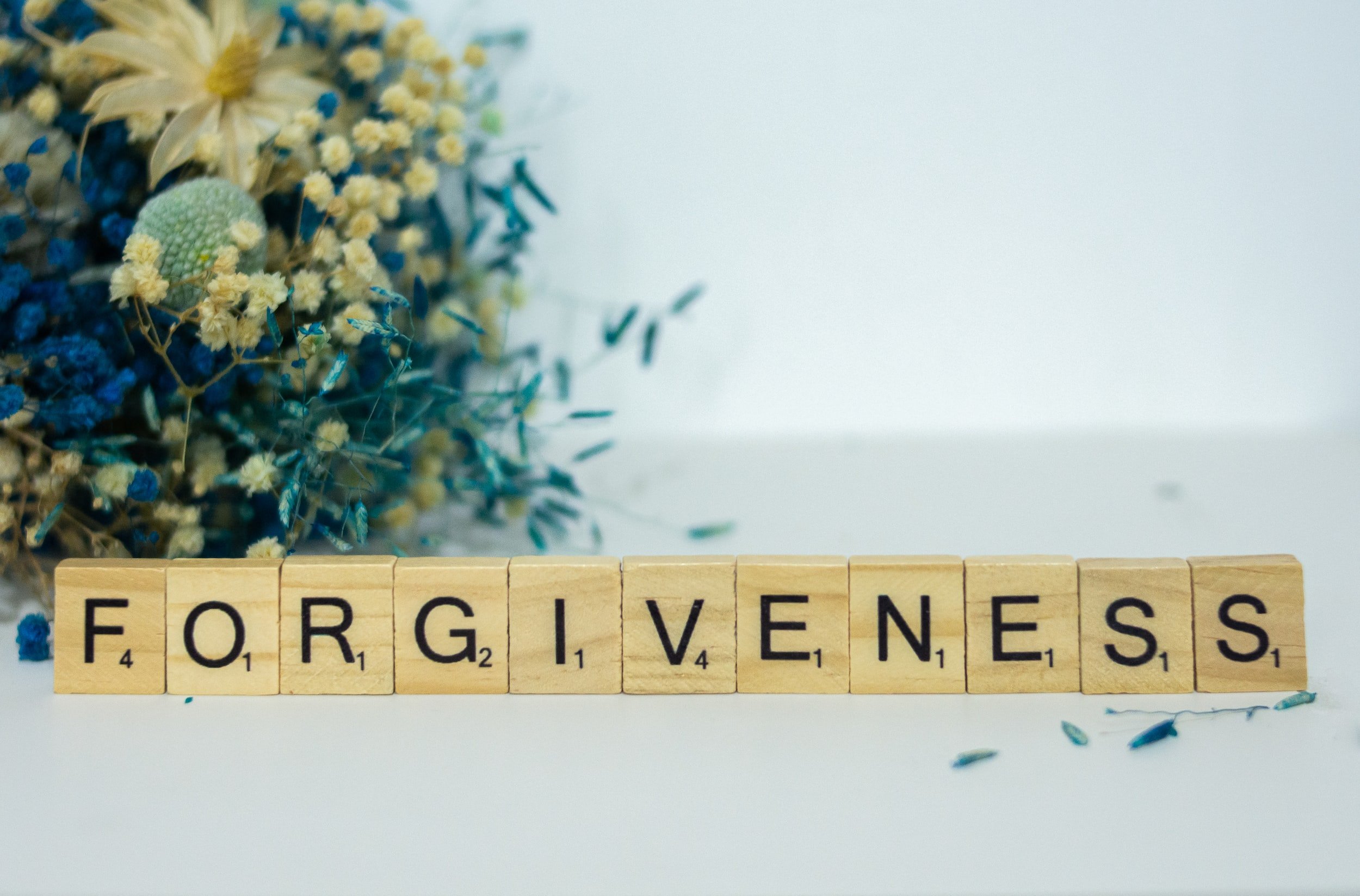Why Forgiving Yourself is Important
Brett Jordan @faithgiant for Unsplash
Have you ever done anything cringe-worthy? Do you have regrets of varying sizes and degrees? These can range from embarrassing to downright shameful and tend to pop back into our minds when we least expect it. That lovely voice that says, “ya, but remember the time when you…”
If you’re like me, that voice is very convincing. If I’m not careful, it can lead me into moments of self-loathing and shame spiraling. What I’ve learned is that having compassion for myself in those moments, and, for those moments is much more healing and helpful.
So how do we do that?
Along with compassion we can begin the process of forgiving ourselves.
Self-forgiveness is the process of accepting responsibility for your mistakes and forgiving yourself for them. It’s an important part of emotional healing and growth, as it allows us to move on from our mistakes and grow as individuals.
Self-forgiveness is also essential for our mental health and well-being, as it helps us to become more accepting of ourselves and more resilient when facing tough situations. Ultimately, it’s a way to show yourself kindness, build self-esteem, and grow. It also helps us be more forgiving of others.
Forgive yourself; you are not perfect. Show yourself grace; you are still learning. Show yourself patience; you are on a journey.
— Shannon Yvette Tanner
5 ways to forgive yourself:
Acknowledge your mistakes and forgive yourself for them. It is important to recognize that you are human and mistakes are inevitable. Accepting that you made a mistake and forgiving yourself for it is the first step to self-forgiveness.
Reframe the situation. Instead of focusing on the mistake, think of it as an opportunity to learn and grow. Think of it as a lesson that will help you become a better version of yourself.
“There are no mistakes in life, only lessons. There is no such thing as a negative experience, only opportunities to grow, learn and advance along the road of self-mastery. From struggle comes strength. Even pain can be a wonderful teacher”
― Robin Sharma
3. Forgive yourself and move on. Don’t dwell on the past. Allow yourself to forgive yourself and move on. It is important to move forward and not let the mistake define you. Holding on to the past keeps you from moving forward.
We can’t change the past anyway. Maybe we can offer amends somehow, or pay it forward; but not letting it go only causes suffering.
4. Be kind to yourself. Remind yourself that you are worthy of love and forgiveness. Speak to yourself in a kind and understanding way, just as you would to someone else.
Most people have good intentions. They don’t typically wake up with the intention to screw up their day, say something offensive, upset others, or fail. But we all fail at things. We all put our foot in our mouths, or cause a conflict at times. What matters is repairing what we can and learning what we can do differently next time.
5. Practice self-care. Take some time for yourself to do something that brings you joy. This could be taking a walk, reading a book, doing yoga, or anything else that helps you feel relaxed and refreshed.
Remember, forgiving ourselves improves our mental and physical health and frees us to have better interactions and relationships in the future.
To work with me on self-forgiveness, book your free 30-minute exploration call.


